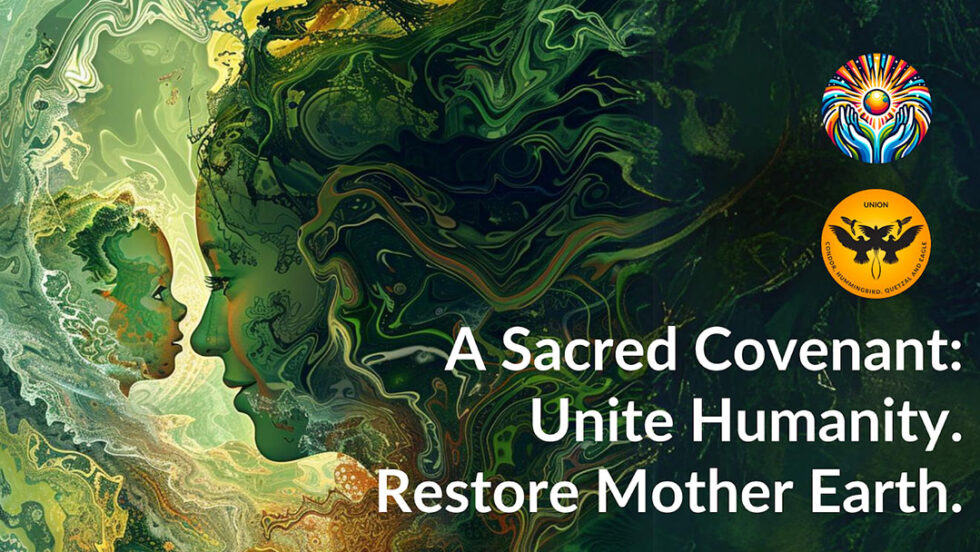The interplay between the Navajo Nation and the Bahá’í community represents a unique confluence of indigenous wisdom and progressive spiritual evolution. At the heart of this relationship lies the concept of the Sacred Covenant—a profound commitment that promises transcendent understanding and collective advancement. This article seeks to illuminate the tenets of Bahá’í teachings as they relate to this covenant, exploring the implications of such an alliance for both communities and ultimately for the broader tapestry of humanity.
The Bahá’í faith emphasizes the oneness of humanity, a doctrine that underpins the essence of its teachings. This principle resonates deeply with the Navajo worldview, which holds a strong belief in the interconnectedness of all beings. Both groups, through their respective spiritual lenses, advocate for harmony, compassion, and service, forming a solid foundation for collaborative endeavors toward social unity and justice.
To fully appreciate the significance of this relationship, one must consider the historical context in which these teachings have emerged. The teachings of Bahá’u’lláh, the founder of the Bahá’í Faith, promulgate the need for the reconciliation of diverse cultural heritages. The Navajo Nation, steeped in rich traditions and communal values, exemplifies a culture that has heretofore faced significant challenges, including cultural dislocation and social inequity. As Bahá’í principles advocate for the eradication of prejudice and the promotion of equality, the intersection of these two teachings manifests a promising avenue for both spiritual enrichment and social reform.
The Sacred Covenant embodies promises that transcend ordinary agreements. In the context of the Navajo and Bahá’í communities, this covenant serves as an invitation to reframe narratives—from that of separation and mistrust to one of unity and mutual respect. Here, a transformative shift in perspective comes into play. It’s vital to see that this covenant is not merely an agreement but rather a profound commitment to co-create a thriving, spiritually enriching future for both communities. Through this lens, differences become assets rather than obstacles, fostering curiosity and deeper understanding.
Moreover, the principles of consultation are pivotal in Bahá’í teachings. This practice, embracing collective decision-making, holds invaluable lessons for the Navajo people, who have traditionally engaged in consensus-based governance. The Bahá’í approach encourages open dialogue, active listening, and the blending of diverse viewpoints—all essential for effective community development. By adopting these principles, the Navajo Nation can foster an environment where traditional wisdom and modern perspectives coalesce to create innovative solutions for contemporary challenges.
The beauty of the Sacred Covenant lies not just in its theoretical underpinnings but in its practical applications. Initiatives borne from the collaboration between Navajo and Bahá’í communities have the potential to address education, environmental stewardship, and social justice. For instance, educational programs that integrate traditional Navajo teachings alongside Bahá’í principles of unity and service can cultivate a sense of identity and purpose among the youth of both communities. Such an integrative educational approach not only enriches the individual but also fortifies the community’s cultural fabric.
Furthermore, the environmental commitments espoused by both groups echo a broader universal call to stewardship of the Earth. The Bahá’í faith teaches that humanity has a responsibility to safeguard the planet as a divine trust. The Navajo spiritual perspective, which reveres the natural world, aligns seamlessly with this ethos. Together, these communities can engage in sustainable practices that honor their ancestral connections to the land while addressing contemporary ecological dilemmas.
Social justice serves as another critical area for collaboration. The Bahá’í teachings espouse the elimination of prejudice in all its forms. For the Navajo, who have historically experienced systemic marginalization, this message resonates profoundly. Joint advocacy efforts can magnify voices that are often overlooked, championing the rights of indigenous peoples while fostering broader societal change. The implications are far-reaching, as such partnerships not only galvanize local communities but also contribute to global discourses on justice and equity.
The dynamic relationship between the Navajo and Bahá’í communities, framed within the context of the Sacred Covenant, invites us to reconsider how we approach inter-cultural relationships. The amalgamation of diverse beliefs and practices encourages a holistic understanding of spirituality—one that transcends dogma and embraces a shared commitment to the betterment of society. In essence, this partnership exemplifies a burgeoning paradigm for collaboration, replete with the potential for enriching humanity’s collective experience.
In conclusion, the Sacred Covenant represents more than an agreement; it is a living embodiment of hope, urging both the Navajo and Bahá’í communities to transcend their individual narratives for a unified purpose. This endeavor promises to cultivate an environment where curiosity flourishes, perspectives shift, and, ultimately, a new socio-spiritual paradigm emerges—one characterized by genuine interconnectedness, mutual respect, and collaborative action. By embracing these teachings, both communities stand to illuminate paths that lead to a more harmonious and compassionate world.
